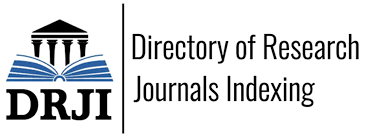The impact of Christian educational and socio-ethical interventions in preventing youth kidnapping in Lagos
DOI:
https://doi.org/10.18326/ijoresh.v3i2.173-196Keywords:
Church education, Church ethics, Kidnapping church, Ethical agenciyAbstract
The mentality of kidnapping for ransom among youths is a contemporary social challenge in Lagos State, South Western Nigeria. If this issue is not addressed, it will negatively impact people psychologically, emotionally, economically, politically, socially, and morally. The purpose of this study is to examine the effect of Christian education on youths' behavioural training and investigate how ethical training provided by churches can contribute to the reduction of kidnapping incidents among youths. The study employed a descriptive quantitative method, gathering data from 120 respondents, including Christian students, mature adults from the University of Lagos, and church members from various denominations across Lagos State. Twelve churches were purposively selected to represent different denominations. The questionnaire comprised 15 items under two sections: demographics and Christian ethics in behavioural training and kidnapping prevention. Responses were measured using a 4-point Likert scale (strongly agree, agree, disagree, strongly disagree). A total of 116 completed questionnaires were analysed, representing a return rate of 96.7%. Quantitative analysis included descriptive statistics such as frequency count, percentages, mean, and standard deviation. The results show that Christian education training, the adoption of societal ethical values, and the promotion of character transformation leading to responsible decision-making are significantly correlated with the decrease in youth kidnappings in Lagos State. The study advocates for early, proactive, and consistent teaching of Christian values and rules, encouraging the use of ethical tools such as reward and punishment to motivate selfless and good decision-making by youths.
References
Aba, J. C. (2008). Christian Ethics and National Security. African Journal of Cross-Cultural Psychology and Sport Facilitation, 10(2), 138-144.
AbdulHafeez, M., S. Asadullah., M. Rosydi, & A. Farooq. (2013). Inculcating ethical values in the students through e-Learning platform. 5th International Conference on Information and Communication Technology for the Muslim World (ICT4M).
Adua, S. S. (2012). Religious studies: A tool for national development. Academic Research International, SAVAP International. Retrieved August 19, 2019 from www.journals.savap.org.pk
Agha, O. S. (2001). The Impact of Religious and Moral Education in National Development. Journal of Religion & Education, 24(2), 94-103.
Ajaja, P. O. (2012). School dropout pattern among senior secondary schools in Delta State, Nigeria. International Education Studies, 5(2), 145–153. https://doi.org/10.5539/ies.v5n2p145
Asante, G., & Bartha, A. (2022). The positive externality of education on crime: Insights from Sub-Saharan Africa. Cogent Social Sciences, 8(1), 2038850. https://doi.org/10.1080/23311886.2022.2038850
Autin, A., Tair, M., & Karpov, A. (2015). Religious and Moral Education in the Context of the Russian Education Modernization. Procedia - Social and Behavioral Sciences, 214, 683-689.
Autin, F., Batruch, A., & Butera, F. (2015). Social justice in education: How the function of selection in educational institutions predicts support for (non) egalitarian assessment practices. Frontiers in Psychology, 6, 707. https://doi.org/10.3389/fpsyg.2015.00707
Ayantayo, J. K. (2002). A Comparative Study of Eschatology in the Bible and Qur’an from the Moral Perspective and its Relevance for Today. Ado Journal of Religions Department of Religious Studies, University of Ado, Ekiti, 1, 29-41.
Ayantayo, J. K. (2009). Fundamentals of religious ethics, Nigeria: End-time Publishing House.
Ayantayo, J. K. (2009). Religious Studies Education in Nigeria: A Tool for National Transformation. International Journal of Philosophy and Religion, 1(1), 1-8.
Bakstanousky, V. I. (1989). Ethics, Moscow Progress Publishers, pp. 5-7.
Bank, W. (2012). Country assessment on youth violence, policy and programmes in South Africa (No. 70733). https://doi.org/10.1596/27159
Beauchamp, T. L., & Childress, J. F. (2019). Principles of Biomedical Ethics. Oxford University Press.
Bostrom, N. (2014). Superintelligence: Paths, Dangers, Strategies. Oxford University Press.
Browning. (2001). The world situation of families: Marriage reformation as a cultural work. Edinburgh: T & T Clark
Clark, R. E., & Johnson, L. (2011). Christian Education: Foundations for the Future. Moody Publishers.
Chinwokwu, E. C. (2014). Trend and pattern of violent crimes in Nigeria: An analysis of the Boko Haram terrorist outrage. Journal of Culture, Society and Development, 3(8), 8-16.
Chinwokwu, E. & Michael, C. (2019). Militancy and violence as a catalyst to kidnapping in nigeria. International Journal of Police Science & Management, 21(1), 17-35. https://doi.org/10.1177/1461355719832619
Ezemenaka, K. (2018). Kidnapping: a security challenge in nigeria. Journal of Security and Sustainability Issues, 8(2), 111-124. https://doi.org/10.9770/jssi.2018.8.2(10)
Fisher, M. P. (2005), Living Religions, Pearson Prentice Hall, Upper Saddle River, NJ, USA,
Glanville, J. L., Sikkink, D., & Hernandez, E. I. (2008). Religious involvement and educational outcomes: The role of social capital and extracurricular participation. The Sociological Quarterly, 49(1), 105-137. https://doi.org/10.1111/j.1533-8525.2007.00108.x
Hartman, L. P., & DesJardins, J. R. (2017). Business Ethics: Decision Making for Personal Integrity & Social Responsibility. McGraw-Hill Education.
Hood, R. W., Spilka, B., Hunsberger, B & Gorsuch, R. (2003). The Psychology of Religion: An Empirical Approach, Guilford Press, New York, NY, USA, 3rd edition.
Igbo, E. U. M & Anugwom, E. E. (2002). Social Change and Social Problems: A Nigerian Perspective. Nigeria AP Express Publishing Company.
Ilechukwu, L. (2015). Towards an Ethical Society: The Role of Christian Ethics. The Pacific Journal of Science and Technology, 16(1), 336-343.
Ilodigwe, C. (2000). Religion and Crime Control in Nigeria. Journal of Religion & Education, 23(2), 48-57.
Imo, C.O. (2000). Dialogue as a means of Resolving Conflicts in the Niger Delta. A Paper Delivered at Niger Delta Conference Held in Port Harcourt
Imo, C.O. (2000). Religion, Morality and the Quest for Human Community. A Paper Presented at the Annual Conference of the Nigerian Association for the Study of Religion (NASR) at Ado Ekiti University, Ado-Ekiti.
Inyang, J. D., & Abraham, U. E. (2013). The Social Problem of Kidnapping and its Implications on the Socio-Economic Development of Nigeria: A Study of Uyo Metropolis. Mediterranean Journal of Social Sciences, 4(6), 531. https://doi.org/10.5901/mjss.2013.v4n6p531
Inyang, U. S. (2009). Kidnapping: Who Can Deliver Nigeria? News D’ OR Magazine, pp. 11-15.
John, M. (2022). Exploring drivers of academic integrity violation in e-assessments by students during the emergency remote teaching, International Conference on Multidisciplinary Research
John, V. (2012). Christianity through a Worldview Lens in Journal of Adult Theological Education.
Jonck, P., Goujon, A., Testa, M. R., & Kandala, J. (2015). Education and crime engagement in South Africa: A national and provincial perspective. International Journal of Educational Development, 45, 141–151. https://doi.org/10.1016/j.ijedudev. 2015.10.002
Mazidi & Ostovar. (2006). Effects of religion and type of religious internalization on the mental health of Iranian adolescents. Percept Not Skills https://doi.org/10.2466/pms.103.1.301-306
Nwagboso, C. I., & Oluwatoyin, M. (2020). Socio-Economic Implications of Kidnapping for Ransom in Nigeria. Journal of Economics and Behavioral Studies, 12(2), 132-145.
Olulowo S.A., Babawale, S. T., & . Anani, K. M. (2021). An Examination of the Causes of Kidnapping and Its Attendant Challenges in Ogun State, Nigeria Journal of Religion and Human Relations. 13(1). https://dx.doi.org/10.4314/jrhr.v13i1.7
Olulowo, S. A. (2017). Socio-Ethical Perspective on the Attitude of the Church to Pre-Marital Sex among Adolescents in Lagos State Nigeria: An Unpublished PhD Thesis Submitted in the Department of Religious Studies to the Post Graduate School in Partial Fulfillment of the Requirements for the Award of Doctor of Philosophy Degree in Christian Studies of Olabisi Onabanjo University, Ago-Iwoye, Ogun State, Nigeria.
Olulowo, S. (2010). A Philosophical Appraisal of Job’s Sufferings and its Implication to the Contemporary Christians in Lagos State. An M.A dissertation submitted to the Department of Religious Studies, Olabisi Onabanjo University, Ago-Iwoye
Opasina, O. K. (2016). The interplay between fragility and crime in African states: a case study of Nigeria and Côte d'Ivoire. International Social Science Journal.
Patchin, J. & Hinduja, S. (2016). Deterring teen bullying. Youth Violence and Juvenile Justice, 16(2), 190-207. https://doi.org/10.1177/1541204016681057
Regnerus, M, D & Elder, G. E. (2003) Religion and Vulnerability among Low-Risk Adolescents. Social Science Research 32, 644, 650.
Richardson, J. D. (1907).Compilation of Messages and Papers of the Presidents, 1789-1897. Washington, D.C.: U.S. Government Printing Office, Vol. 1, p. 213.
Shavisa, T., Ndiku, J. M., Asiligwa, R. A., & Gaunya, C. R. (2015). An evaluation of the relationship between school dropout and involvement in criminal behaviour among juvenile delinquents serving at Shikusa Borstal institution Kenya. International Journal of Education and Research, 3(11), 13–24.
Shofiu, R. & Isiaka, A. (2020). Kwara-central undergraduates’ perceived peer pressures on youths involvement in kidnapping. Journal of Education and Learning (Edulearn), 15(1), 41-47. https://doi.org/10.11591/edulearn.v15i1.15025
Udoidem, E. I. (1992). A Framework for Religious and Moral Education in Nigeria. Journal of Religion & Education, 15(1), 67-77.
Udoidem, S. I. (1992). Understanding Philosophy, Lagos: African Heritage Research and Publications.
United Nations Department of Economic and Social Affairs. (2019). World population prospects 2019 Highlights. United Nations.
United Nations Office on Drugs and Crime (UNODC). (2020). Global Study on Kidnapping. United Nations.
United Nations Population Fund. (2014). State of the World’s Population 2014: The Power of 1.8 Billion. Adolescents, Youth and the Transformation of the Future. United Nations.
UNODC (2003). International Cooperation in the Prevention, Combating and Elimination of Kidnapping and Providing Assistance to Victims.
Walzer, M. (1983). Spheres of Justice: A Defense of Pluralism and Equality. Basic Books.
Downloads
Published
How to Cite
Issue
Section
License
Copyright (c) 2024 Olulowo Segun Ayotunde, Taiwo Babawale Solomon, Adedeji Olusola Israel

This work is licensed under a Creative Commons Attribution-ShareAlike 4.0 International License.
Copyright
Authors who publish with Indonesian Journal of Religion, Spirituality, and Humanity agree to the following terms:
- Authors retain copyright and grant the journal right of first publication with the work simultaneously licensed under a Creative Commons Attribution License (CC BY-SA 4.0)that allows others to share the work with an acknowledgement of the work's authorship and initial publication in this journal.
- Authors have the right to enter into separate, additional contractual arrangements for the non-exclusive distribution of the journal's published version of the work (e.g., post it to an institutional repository or publish it in a book), with an acknowledgment of its initial publication in this journal.
- Authors are permitted and encouraged to post their work online (e.g., in institutional repositories or on their website) prior to and during the submission process, as it can lead to productive exchanges, as well as earlier and greater citation of published work.
Licensing
This work is licensed under a Creative Commons Attribution-ShareAlike 4.0 International License.








